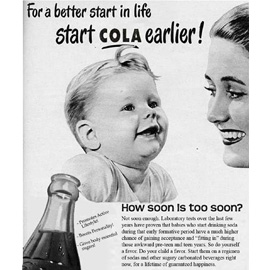Is effectiveness missing in your marketing?
 Have you ever watched an ad on TV and then wondered who (or what) was that for?
Have you ever watched an ad on TV and then wondered who (or what) was that for?
It doesn’t matter how captivating or entertaining, if you can’t remember what or who an ad was for then it’s not effective.
I once stopped along a busy road in the winter and walked through the deep snow to get a closer look at a large billboard ad. Yes, I’m not normal. But I had been driving past this billboard many times and could never figure out what the image was. As a marketer, it really bugged me.
As it turned out, the image in that billboard ad was a close-up shot of a dipstick being pulled out of car engine to check the oil. I suspect few could see it. It was a terrible ad trying to promote some engine oil that I don’t even remember the name.
Why does this happen?
Beware the Pitfalls
Over the past 20 years I have participated in the process of creating many different promotional pieces. I’ve seen first hand how this happens. And it doesn’t matter if it’s a print ad or direct mail piece, a website or trade show materials, or even sales collateral. There are some common pitfalls that quickly reduce or even eliminate marketing effectiveness.
The 3 most common pitfalls that produce ineffective marketing are:
- Too many cooks in the kitchen. On more than one occasion I had to work with clients where literally dozens of people were involved in contributing and even deciding on the messaging, the graphics, and even how it would be communicated. The final product was a horrible compilation of everyone’s ideas, desires, and tastes. As the saying goes, “it was a dog’s breakfast.”
- Including irrelevant and/or non-customers in the process. With one particular client, the VP decided to take our recommended marketing piece home to get his family’s feedback. He came back saying it wasn’t any good because his wife and kids didn’t like it. But they weren’t even remotely close to being the target market, so what relevance did their opinion have?
- Allowing egos and personal interests to rule. A number of years ago I worked with a large telecommunications equipment manufacturer. Their target market were IT and Telephony managers. One of the marketing managers at this company was pushing hard to implement her idea for a promotional campaign. Her concept was a “Blue Light Special” based on her personal experience of shopping at K-Mart. While she personally loved the idea, it had no relevance to the male-dominated, geek-oriented target audience.
In all of these common pitfalls, what’s missing is the viewpoint of the customer. If you want your marketing to be effective, it must include the customer. Why?
The answer lies in the value of effectiveness.
The Value of Effectiveness
As a differentiating value, Effectiveness means producing an intended result; able to accomplish a purpose.
What does this mean in marketing?
First consider the objectives of strategic marketing. Objectives might include specific sales targets, increased market share, enhanced brand value, opening new markets, launching new products, or a host of other measureable results. But the common element across all marketing metrics includes a customer.
Effective marketing includes someone willing to pay for your product or service. This is what produces the intended results.
So, the best way to develop an effective ad? Go talk to some customers and ask them when, where, how, and most importantly why they buy. And the easiest way to build a useful website? Engage some customers in the process. You’ll be surprised at what really matters to them, and what parts you can just leave out.
For some useful tips on asking better customer insight question, I suggest you read this.
Additional Resources
So here are a few additional resources that might help:
- If focus is an issue for your organization, I encourage you to read a previous post called 11 Principles to Develop a Focus for Your Brand.
- If the team needs a boost on providing a sense of accomplishment, I suggest you to read the post called What has your organization accomplished – lately?
- And if there is any confusion around the difference between effectiveness and efficiency, I encourage you to read a post called Efficiency vs. Effectiveness. An important distinction made here is that effectiveness is about leadership, while efficiency is about management.
What other pitfalls have you experienced that led to less than effective marketing?
How can the value of effectiveness make a difference in your business?
Today’s value was selected from the “Effectiveness-Influence” category, based on the e-book Developing Your Differentiating Value.







